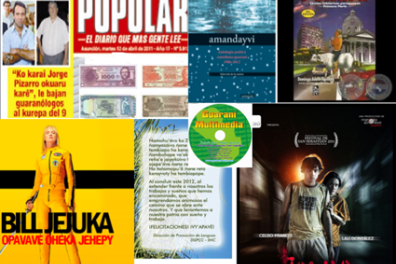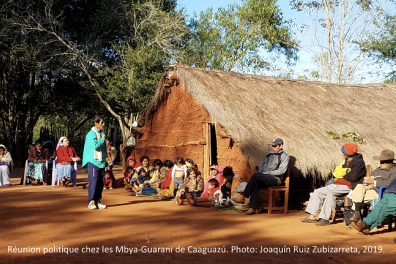Discovering the language
The Tupi-Guarani language family is very extensive, from southern French Guiana to northern Argentina, via Brazil, southern Bolivia and all of Paraguay. But in these nation-states, the legal and symbolic status of the languages belonging to this same linguistic family is highly varied: minority, regional or national.
In Brazil, the so-called "Tupi" languages have a minority and ethnic status, even though in the national imagination "Tupi" has an important founding role. In Bolivia, Guarani, spoken in the Chaco region, is a minority language compared to Aymara or Quechua, but is gradually beginning to gain in importance. In Argentina, in the province of Corrientes, Guarani is now recognized as an official regional language. In Paraguay, Guarani is as official as Spanish.
It is spoken by 90% of the Paraguayan population and recognized as the very symbol of the nation, even though only 2% of the population identify themselves as Indians. The Paraguayan population's relationship with Guarani is complex: it is an object of national pride, but also synonymous with low socio-economic status. The vigor of the population's contradictory attachment to Guarani, the vitality of its cultural manifestations and the strong political recognition it enjoys in Paraguay make its study particularly interesting.
Teachers
Capucine Boidin is a university professor in anthropology at Sorbonne Nouvelle University - Paris 3 / IHEAL (Institut des Hautes Études d'Amérique Latines). She is in charge of the Guarani course for Inalco.
Élodie Blestel is a lecturer in linguistics at Sorbonne Nouvelle University - Paris 3 / EILA Department (Iberian and Latin American Studies).
Joaquín Ruiz Zubizarreta is a doctoral student in social anthropology and ethnology at L'École des Hautes Études en Sciences Sociales (EHESS).View e-mail

